Results
-
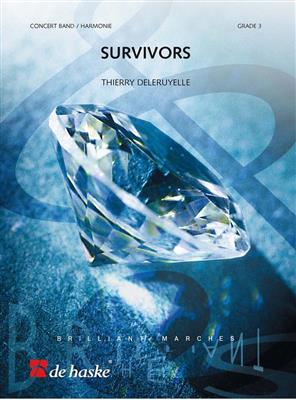 £64.99
£64.99Survivors - Thierry Deleruyelle
Survivors is a concert march that is both luminous and tuneful. The brilliance of the brass, combined with the expressiveness of the woodwinds, gives this work a clear modernity. It was composed for and dedicated to those wounded in the army, paying tribute to their courage, resilience, and inner strength. Through a musical style rich in emotion and power, this work celebrates the "survivors" - those who, despite the hardships of war and injury, continue to pick themselves up, overcome adversity, and find within themselves an unshakeable determination. Survivors embodies both the enormity of the struggle and the hope of reconstruction, a march for those who have been wounded but who, through their courage, have become survivors. This concert march was commissioned by the French Army bands on the initiative of their musical director, Maurice Marc.
Estimated dispatch 7-14 working days
-
£29.95
Southdown - Score and Parts - Ray Steadman-Allen
Program NotesRay Steadman-Allen is one of the most foremost composers of the Salvation Army. He has over 400 pieces published and has been a most inventive and creative composer since his first composition was published in 1945. Having officer parents meant Ray grew up in the Salvation Army. He himself became an officer in 1950 and subsequently held many positions within the SA culminating in 1967 when he was appointed as the Head of Music Editorial where he was responsible for selecting and editing all music to be published by the SA. His versatility means he can compose music for all occasions and for all instrumental combinations; from Championship section test pieces to a straight forward setting of a children's song.The march Southdown represents music of a simpler nature from this great composer and was composed originally for a music school in Bolney Court. Bolney Court, near Brighton, is close to the downs in the southern county of Sussex, hence the title. It follows the traditional form of a march and will be an attractive addition to the repertoire of most types of wind-band.
Estimated dispatch 7-14 working days
-
£5.95
Southdown - Score only - Ray Steadman-Allen
Program NotesRay Steadman-Allen is one of the most foremost composers of the Salvation Army. He has over 400 pieces published and has been a most inventive and creative composer since his first composition was published in 1945. Having officer parents meant Ray grew up in the Salvation Army. He himself became an officer in 1950 and subsequently held many positions within the SA culminating in 1967 when he was appointed as the Head of Music Editorial where he was responsible for selecting and editing all music to be published by the SA. His versatility means he can compose music for all occasions and for all instrumental combinations; from Championship section test pieces to a straight forward setting of a children's song.The march Southdown represents music of a simpler nature from this great composer and was composed originally for a music school in Bolney Court. Bolney Court, near Brighton, is close to the downs in the southern county of Sussex, hence the title. It follows the traditional form of a march and will be an attractive addition to the repertoire of most types of wind-band.
Estimated dispatch 7-14 working days
-
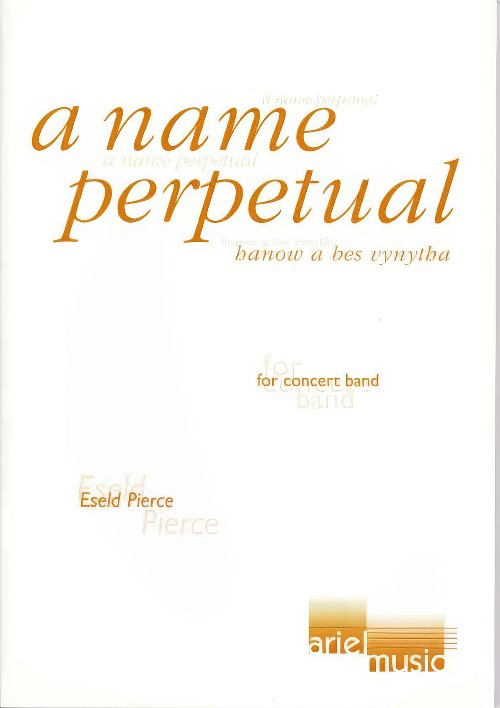 £115.00
£115.00NAME PERPETUAL, A (Concert Band) - Pierce, Eseld
Under the leadership of Michael An Gof and Thomas Flamanck, a Cornish host, sometimes estimated to number as many as 15,000, marched to London in protest against excessive taxation. Arriving at Blackheath, they were attacked by the King's army and defeated, and the two rebel leaders were hung, drawn and quartered. On his way to his death, An Gof stated that he would have "a name perpetual and a fame permanent and immortal". A Name Perpetual tells the story of the Rebellion in four connected scenes. The music includes strong elements of the Celtic music tradition, being structured around an old Cornish folk tune. The first scene introduces fragments of the folk theme and reflects the anguish of the Cornish people. The second scene opens with the folk theme on solo piccolo and, as different instruments enter one by one, the march is depicted with its accumulation of forces en route. The march halts suddenly as the Cornishmen discover the unexpected arrival of the English army and the subsequent music portrays the Blackheath Skirmish. In this scene the orchestra is divided into four parts, each working independently to create a sense of chaos, with the stronger elements of the brass and bass instruments representing the English, while the woodwind and saxophones represent the Cornish, struggling to sustain the folk tune throughout the battle. Eventually all the parts come together and the final section is a lament for the lost Cornishmen, fading away to leave only a haunting off-stage trumpet solo.
Estimated dispatch 7-14 working days
-
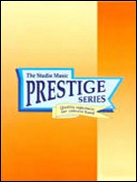 £124.95
£124.95SWORD AND THE CROWN, The (Prestige Concert Band - Score and Parts) - Gregson, Edward
In 1988 I was commissioned by the Royal Shakespeare Company to write the music for The Plantagenets trilogy, directed by Adrian Noble in Stratford-upon-Avon. These plays take us from the death of Henry V to the death of Richard III. Later, in 1991, I wrote the music for Henry IV parts 1 and 2, again in Stratford. All of these plays are concerned with the struggle for power (the crown) through the use of force (the sword) and they portray one of the most turbulent periods in the history of the British monarchy.This work quickly became established in the mainstream repertoire and has received performances worldwide as well as five commercial recordings and many broadcasts. In 2002 I was approached by the Parc and Dare Band regarding their summer festival and commissioned to do a version for brass band. This was given its first performance in Treorchy Hall by the combined bands of Black Dyke and Parc and Dare conducted by Nicholas Childs.When the Royal Air Force Music Services commissioned me to write a work especially for their British tour in 1991 I immediately thought of turning to this music and transforming some of it into a three-movement suite for symphonic band.The first movement opens with a brief fanfare for two antiphonal trumpets (off-stage), but this only acts as a preface to a Requiem aeternam (the death of Henry V) before changing mood to the English army on the march to France; this subsides into a French victory march, but the English army music returns in counterpoint. Finally, a brief reminder of the Requiem music leads to the triumphal music for Richard Plantagenet, Duke of York, father of Edward IV and Richard III (the opening fanfare transformed).The second movement takes music from the Welsh Court in Henry IV (part 1) which is tranquil in mood; distant fanfares foreboding battles to come are heard, but the folktune is heard three times in different variations and the movement ends as it began with alto flute and gentle percussion.The final movement starts with two sets of antiphonally placed timpani, drums and tam-tam, portraying the 'war machine' and savagery of battle. Trumpet fanfares and horn calls herald an heroic battle theme which, by the end of the movement, transforms itself into a triumphant hymn for Henry IV's defeat of the rebellious forces.- Edward GregsonPerformance time 13'54"Recorded on QPRM117D FESTIVAL OF MUSIC 1991, Massed Bands of the Royal Air ForceRecorded on QPRM120D THE SWORD AND THE CROWN, Central Band of the Royal Air Force'Finale' recorded on QPRM142D FESTIVAL OF MUSIC 2002, Massed Bands of the Royal Air Force)
Estimated dispatch 7-14 working days
-
£84.50
The Royal Irish Regiment - Larry Clark
The Royal Irish Regiment is an infantry regiment of the British army. This march was therefore meant to be in the style of a classic British style march. The march is set to emulate the passing by of the regiment as it marches in a parade. It starts with a tuneful fife-sounding melody in the flute or piccolo over the sound of bagpipes. The march then developes featuring all of the sections of the band in this colorful regal type march. Use it as a different type of march at your next contest or festival performance.
Estimated dispatch 7-14 working days
-
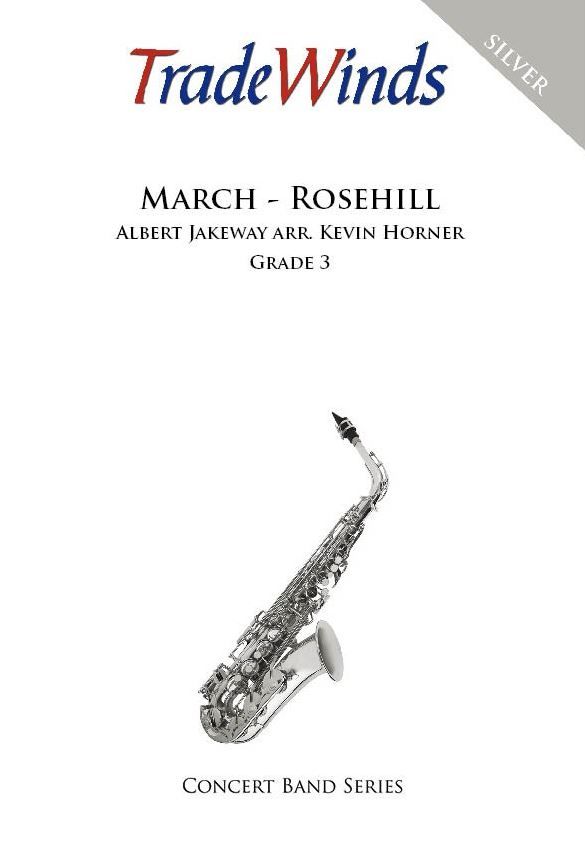 £34.95
£34.95Rosehill
Composer: Albert JakewayDuration: 3:30Series: TradeWinds SilverGrade/Difficulty: 64Arranger: Kevin HornerAlbert Jakeway was born in the Welsh town of Aberdare. Before entering the International Training College in 1914 to become a Salvation Army officer he developed as a musician through the playing of the cornet and euphonium of the Corps band. In 1926 he was transferred to the Music Editorial Department and also became a member of the International Staff Band. During a period of 9 years he was the Bandmaster of the Rosehill Band with whom he made many recordings and broadcasts. Later he directed a number of other significant Salvation Army bands and also served time abroad in Czechoslovakia.Programme NoteMarch Rosehill was composed by the conductor of the Rosehill band, a one Colonel Albert Jakeway and was named after the premises that were occupied by the Salvation Armys Assurance Society when they were evacuated during the World War 2. It is a majestic march that will find good use in a performance or marching band.
Estimated dispatch 7-14 working days
-
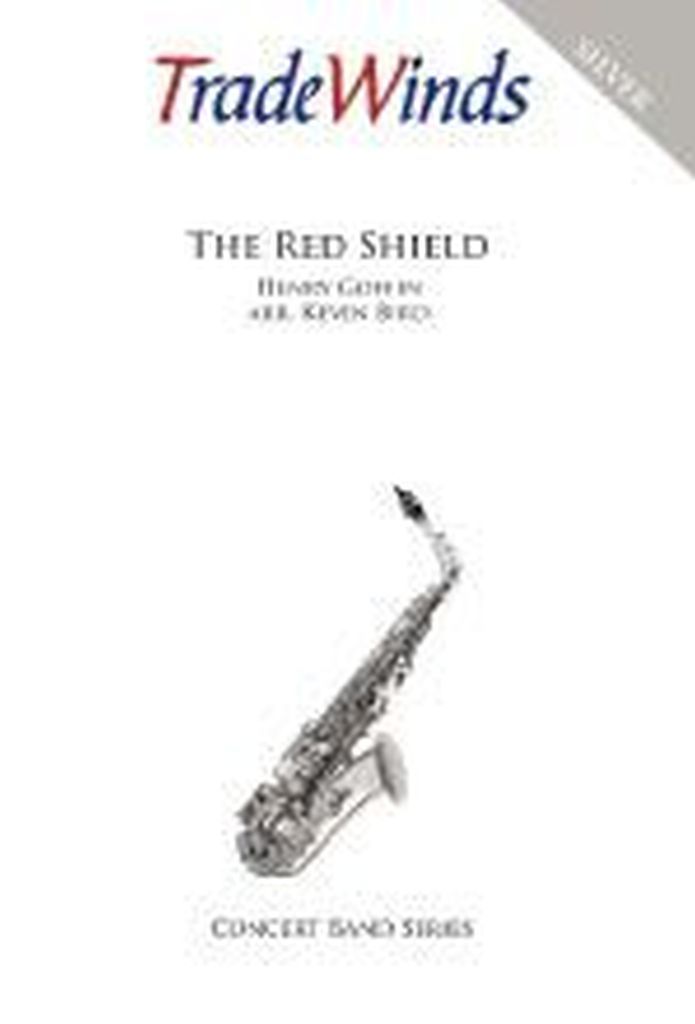 £54.95
£54.95The Red Shield
Written in 1928, this march has become a Salvation Army classic. The title refers to The Salvation Army red shield logo known the world over.
Estimated dispatch 7-14 working days
-
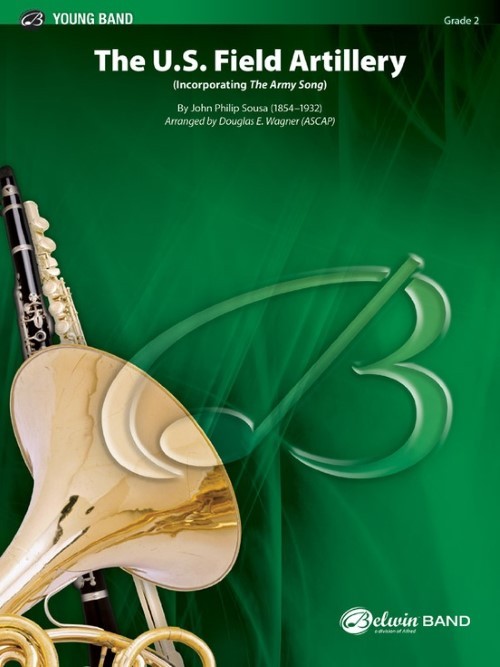 £60.50
£60.50The U.S. Field Artillery (Concert Band - Score and Parts) - Sousa, John Philip - Wagner, Douglas E.
Composed in 1917, "the official march of the United States Army" is one of Sousa's most frequently performed titles. It's unique in that it uses a familiar tune for the trio theme; in this case, "The Army Song." The original thematic material has been diligently preserved while scored to be accessible to the developing band.Duration: 2:30
Estimated dispatch 7-14 working days
-
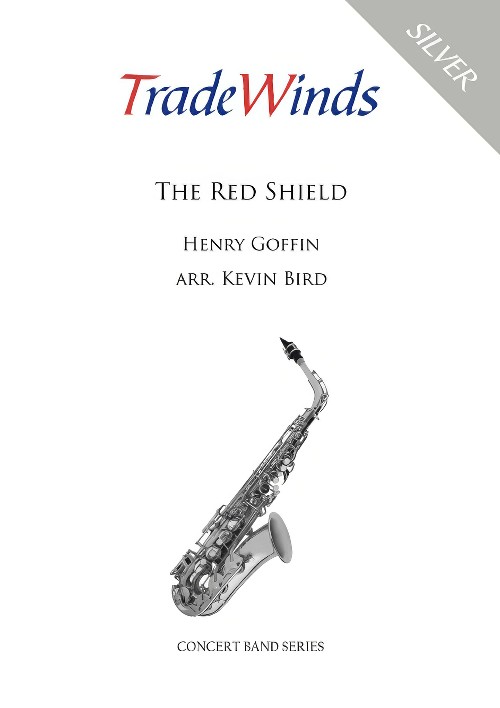 £54.95
£54.95The Red Shield (Concert Band - Score and Parts) - Goffin, Henry - Bird, Kevin
Written in 1928, this march has become a Salvation Army classic. The title refers to The Salvation Army red shield logo known the world over.
Estimated dispatch 7-14 working days
